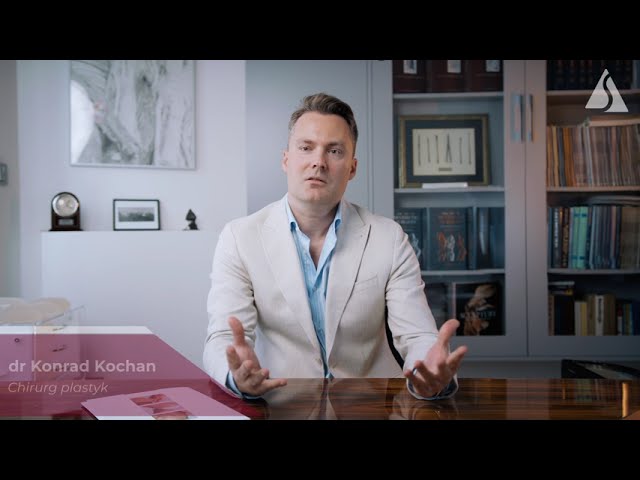How do diet and weight affect the recovery process and the results of plastic surgery?

A proper diet is not only to support the body during the recovery process, but also an important part of the preparation for surgery. Maintaining the right weight before surgery affects the safety of the procedure and allows to achieve better and longer-lasting aesthetic results. A balanced menu provides essential nutrients that promote tissue regeneration, reduce the risk of complications and speed up recovery, so nutrition and weight issues are important both before and after surgery.
Proper nutrition before and after plastic surgery
Diet before plastic surgery is one of the most important elements of preparing the body for surgery. Balanced meals provide essential nutrients that promote tissue regeneration, strengthen the immune system and reduce the risk of later complications. Adherence to dietary recommendations not only helps improve the patient's health before surgery, but also affects the effectiveness and durability of the results obtained. A properly selected diet therefore becomes an essential component of comprehensive perioperative care.
A healthy diet helps reduce the risk of inflammation, improves circulation and supports immune system function. A diet rich in protein promotes tissue regeneration, which speeds up wound healing and reduces the risk of scarring. In turn, adequate hydration levels affect skin elasticity and overall condition. It's also worth remembering that a proper diet makes it easier to maintain body weight and prevent the formation of new fat deposits, thus preserving the effects of treatments for longer.
Is weight reduction before plastic surgery necessary?
Excess weight puts a strain on the body, increasing the risk of surgical complications, including infections, more difficult wound healing and circulation problems. Reducing body fat before surgery translates into better and longer-lasting aesthetic results. Achieving an optimal weight helps the surgeon model the body more precisely, resulting in more satisfying results.
Weight reduction is especially important for abdominal plastic surgery, breast reduction or liposuction. Reducing weight before surgery not only affects the safety of the operation, but also allows the surgeon to choose the right technique. However, it is important that the reduction process is carried out under the guidance of specialists to avoid sudden fluctuations in weight, which are also detrimental to the patient's health.
Overweight and its impact on the effects of the treatment
Being overweight can significantly affect the results of plastic surgery, both aesthetically and in terms of health. Excess body fat makes it difficult for the surgeon to accurately model the body. In addition, the skin of obese people is less elastic, limiting the body's ability to naturally adjust to the new shape after surgery.
In terms of health, being overweight increases the risk of complications, including problems with wound healing, an increased tendency to infections or blood clots. It also means a longer recovery time and more strain on the body after surgery.
Liposuction vs. weight reduction
Liposuction is one of the most commonly performed plastic surgery procedures, which aims to reshape the figure by removing excess fat from selected areas of the body like the abdomen, hips, thighs or arms. However, it is important to remember that liposuction is not a method of weight loss. The procedure works best for people who are at a stable weight, but are struggling with fat deposits that are difficult to remove and resistant to diet and exercise. A stabilized weight prior to surgery is important to the surgeon, as it allows for precise body contouring and more predictable and lasting results. For those who are overweight or obese, liposuction will not replace healthy eating habits or regular physical activity, which play a key role in maintaining long-term results after surgery.
Weight reduction vs. breast surgery
With fat reduction, the surgeon has the opportunity to more precisely model the breasts, resulting in a more proportionate and harmonious silhouette. In addition, a stable weight before surgery helps to avoid later changes in the appearance of the breasts, which can occur as a result of sudden weight loss or gain. It is also worth remembering that fluctuations in weight after surgery can lead to a loss of skin firmness and changes in the shape of the breasts, so striving for a stable, healthy weight is important not only during the preparation stage, but also during the recovery period and in the long term after surgery.
Diet versus abdominal plastic surgery
A properly balanced diet is important before and after abdominal plastic surgery. For those who are overweight or obese, proper nutrition and weight reduction before surgery are extremely important - being significantly overweight increases the risk of complications, including infections, more difficult wound healing or blood clotting problems. Losing excess body fat prior to surgery reduces stress on the body, improves skin condition and allows the surgeon to achieve more precise and permanent results, resulting in a better and more aesthetically pleasing abdomen.
Dietitian support after plastic surgery
The support of a nutritionist after plastic surgery helps maintain the effects of the procedures and speeds up the recovery process. Consultation with a dietitian allows you to maintain a stable body weight, which is important especially for procedures like liposuction, where achieving lasting results depends on maintaining healthy eating habits. With professional support, you can not only improve your post-surgery well-being, but also prevent weight fluctuations that could negatively affect the results.
At Dr Szczyt Clinic, we place a high value on dietary support. This complements our comprehensive perioperative care. We understand that proper nutrition has a huge impact on the recovery process, aids recovery and reduces the risk of complications after surgery. Cooperation with an experienced nutritionist allows patients not only to recover faster, but also to maintain the aesthetic results achieved. The nutritionist analyzes the patient's health, lifestyle and the specifics of the procedure performed, and only on this basis proposes an optimal dietary plan.
FAQ
Is diet before plastic surgery necessary?
Yes, a proper diet before surgery supports the body in the recovery process, strengthens the immune system and prepares the body for the increased effort of the surgery. Balanced nutrition also reduces the risk of complications and affects the quality of surgical outcomes.
What products should I eat before surgery?
Before surgery, it is advisable to eat foods rich in protein (e.g. lean meat, fish, eggs), vitamins (e.g. fruits and vegetables) and minerals (e.g. nuts, seeds, whole grain cereal products). Alcohol, fatty and processed foods and excess sugars should be avoided.
Is weight reduction necessary before plastic surgery?
For overweight or obese patients, weight reduction is advisable to reduce the risk of complications and improve the results of the procedure. The decision on the need for weight reduction is made by the doctor during the consultation.
Is liposuction a method of weight loss?
No, liposuction is not a method of weight loss. It is a body contouring procedure that removes excess fat from selected areas of the body, but it is not a substitute for a healthy lifestyle or weight loss process.
How does diet affect recovery after surgery?
A diet rich in protein, vitamins (e.g. C and A) and minerals (e.g. zinc) promotes tissue regeneration, accelerates wound healing and strengthens the immune system. Proper nutrition reduces the risk of complications and helps achieve lasting results from surgery.
Can I eat anything after surgery?
No, after surgery, you should avoid hard to digest, processed and fatty foods that can put stress on the body. Balanced meals rich in nutrients and adequate hydration are recommended to promote the healing process.
Is it necessary to work with a nutritionist after surgery?
Working with a nutritionist is very helpful, as it allows you to develop a nutrition plan tailored to your individual needs. This can help speed up recovery and maintain the effects of surgery.
How long should I follow a special diet after surgery?
The duration of the diet depends on the type of surgery and the patient's health. Usually special attention is recommended when it comes to nutrition for a few weeks after surgery, but healthy habits are worth continuing to maintain the results.
Is being overweight a contraindication to abdominal plasty?
Being significantly overweight can be a contraindication to abdominal plasty, as it increases the risk of complications and makes it more difficult to achieve satisfactory results. Weight reduction before surgery is often recommended.







.jpg)






